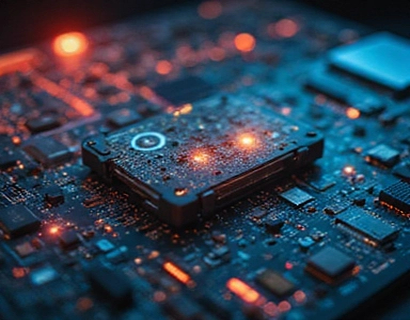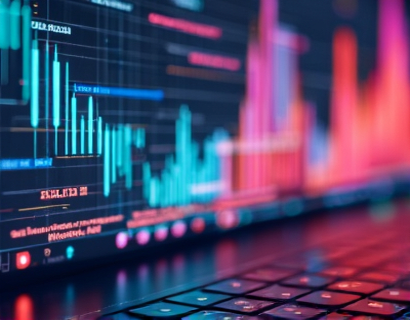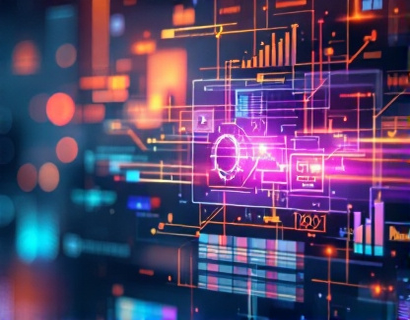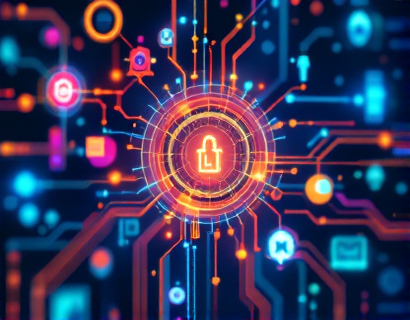The Intersection of AI and Crypto: Pioneering the Future of FinTech
The convergence of artificial intelligence and cryptocurrency is redefining the landscape of financial technology. This fusion is not just a trend but a transformative force that is driving innovation and efficiency in the digital finance sector. As we explore this dynamic relationship, it becomes evident that AI and crypto are not merely complementary technologies but are intertwined in a way that is reshaping how we perceive and interact with financial systems.
Understanding the Basics: AI and Cryptocurrency
To fully grasp the impact of AI on cryptocurrency, it's essential to understand the fundamental concepts of both technologies. Artificial intelligence, a branch of computer science, involves the development of algorithms and systems that can perform tasks requiring human intelligence, such as learning, reasoning, and self-correction. On the other hand, cryptocurrency is a digital or virtual currency that uses cryptography for security and operates on a decentralized network, typically a blockchain.
Cryptocurrencies like Bitcoin and Ethereum have disrupted traditional financial systems by offering a decentralized, transparent, and secure method of transaction. The underlying blockchain technology ensures that all transactions are recorded immutably, reducing the need for intermediaries and lowering transaction costs. This decentralized nature of crypto makes it an ideal domain for AI applications, where data integrity and automation are paramount.
AI in Cryptocurrency: Enhancing Security and Efficiency
One of the most significant contributions of AI to the crypto space is in the realm of security. Cryptocurrency exchanges and wallets are prime targets for cyberattacks, and AI can play a crucial role in mitigating these risks. Machine learning algorithms can analyze vast amounts of data to detect patterns and anomalies that indicate potential security breaches. For instance, AI can monitor transaction patterns and user behavior to identify suspicious activities in real-time, enabling quick responses to potential threats.
Moreover, AI enhances the efficiency of cryptocurrency operations. Smart contracts, self-executing contracts with the terms directly written into code, can be optimized using AI to ensure they function flawlessly and autonomously. AI can also streamline the process of mining by predicting optimal times for mining activities based on network conditions and energy costs, thereby improving the overall efficiency of the mining process.
Predictive Analytics in Crypto Markets
Another area where AI shines in the crypto world is predictive analytics. The crypto market is notoriously volatile, and traditional financial models often struggle to predict price movements accurately. AI algorithms, particularly those using deep learning and natural language processing, can analyze vast datasets including historical price data, news articles, social media sentiment, and economic indicators to forecast market trends with higher accuracy.
These predictive models can help traders and investors make more informed decisions, potentially leading to better investment strategies and risk management. For example, AI-driven trading bots can execute trades based on real-time data analysis, executing orders at optimal times to maximize profits and minimize losses. This level of automation and precision is a game-changer in the fast-paced crypto market.
Personalized User Experiences through AI
The integration of AI in cryptocurrency also extends to enhancing user experiences. Platforms can leverage AI to offer personalized services tailored to individual user preferences and behaviors. For instance, AI can analyze a user's transaction history, investment goals, and risk tolerance to provide customized portfolio recommendations. This personalized approach not only improves user satisfaction but also increases the likelihood of user retention and engagement.
Furthermore, AI-powered chatbots and virtual assistants can provide 24/7 customer support, answering queries and guiding users through complex processes such as setting up wallets, executing trades, and managing assets. These AI-driven tools can understand natural language queries and provide accurate, timely responses, significantly enhancing the user experience.
Decentralized Finance (DeFi) and AI
The rise of Decentralized Finance (DeFi) has opened new avenues for AI applications in the crypto space. DeFi platforms aim to create financial services that are open, transparent, and accessible to everyone, without the need for traditional financial intermediaries. AI can enhance DeFi by improving protocol efficiency, risk assessment, and fraud detection.
For example, AI can optimize lending and borrowing protocols by dynamically adjusting interest rates based on market conditions and user behavior. This adaptive approach ensures that both lenders and borrowers benefit from fair and efficient terms. Additionally, AI can help in identifying and mitigating risks associated with smart contracts, such as reentrancy attacks, by continuously monitoring and updating the contract logic.
Challenges and Ethical Considerations
While the integration of AI and crypto offers numerous benefits, it also presents challenges and ethical considerations. One major concern is the potential for AI to be used in malicious activities, such as generating synthetic identities for phishing attacks or automating large-scale market manipulation. Ensuring that AI systems are designed with robust security measures and ethical guidelines is crucial to prevent such misuse.
Another challenge is the regulatory landscape. As AI and crypto continue to evolve, regulators are grappling with how to oversee these technologies to protect consumers and maintain market integrity. Striking the right balance between innovation and regulation is essential to foster a healthy ecosystem that benefits all stakeholders.
Future Prospects: AI and Crypto Synergy
The future of AI and crypto is bright, with ongoing advancements promising even more sophisticated and integrated solutions. As AI algorithms become more advanced, their ability to process and analyze complex data sets will continue to improve, leading to more accurate predictions and more efficient operations in the crypto space.
Moreover, the development of quantum computing, which can perform calculations at unprecedented speeds, could further enhance the capabilities of AI in crypto. Quantum AI could revolutionize areas such as cryptography, making transactions even more secure and opening up new possibilities for decentralized applications.
In conclusion, the synergy between AI and crypto is driving a new era of financial innovation. By leveraging the strengths of both technologies, we can create more secure, efficient, and user-friendly financial systems. As the landscape continues to evolve, staying informed and adaptable will be key for tech enthusiasts, innovators, and anyone interested in the future of finance.










































